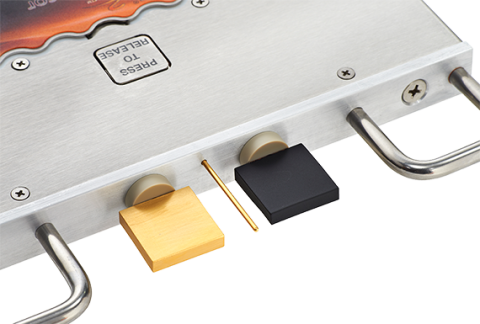Innovation is key to staying competitive in baking. Developing new products, whether it’s a unique type of bread, gluten-free pastries, or specialty cookies, requires precision and creativity. Thermal processing technology for bakeries from Reading Thermal plays a critical role in this process, ensuring that your ideas transition seamlessly from concept to production. By controlling heat application, you can experiment, refine, and consistently produce high-quality goods.
Why Thermal Processing Is Essential for New Products
Even small changes in temperature or baking time can significantly alter the final product. Thermal processing allows you to control these factors, ensuring your product meets the same high standards every time.
In addition, thermal processing helps meet food safety requirements. Certain products must reach specific internal temperatures to destroy pathogens and ensure safety. By mastering thermal processing, you can validate these requirements during the development phase, avoiding costly revisions later.
Enhancing Product Quality Through Thermal Processing
Thermal processing directly influences several aspects of your product, including:
- Texture: The way heat interacts with ingredients determines whether your product is soft, chewy or crisp. Adjusting baking time or temperature during thermal processing helps you achieve the ideal texture.
- Appearance: Consistent heat distribution ensures your product looks as good as it tastes. Thermal processing helps prevent issues like uneven browning or burning.
By carefully controlling these factors, you can create a product that not only meets customer expectations but exceeds them.
Experimenting with Thermal Variables
During new product development, you need to test various combinations of temperature, humidity, and baking time to find the ideal conditions. For example, you might experiment with longer baking times at lower temperatures to create a softer crust or shorter, high-temperature bakes for crispier results.
Thermal processing tools from Reading Thermal, such as thermal profilers and data loggers, are invaluable during this phase. These devices provide precise, real-time data on how your product responds to different conditions, enabling you to make informed adjustments.
Streamlining the Development Process
New product development can be time-intensive, but thermal processing helps streamline the process. Instead of relying on guesswork, you can use data-driven insights to refine your product faster. For example, thermal profiling can reveal whether a product is baking evenly, allowing you to address issues without delaying production timelines.
In addition, thermal processing makes it easier to scale recipes. What works in a small test kitchen doesn’t always translate to larger production batches. By applying the principles of thermal processing during development, you can ensure scalability without compromising quality.
Supporting Innovation in Baking
Thermal processing isn’t just about perfecting existing recipes—it’s about enabling new techniques and ideas. For example, you can experiment with multi-phase baking, where different stages of the process use varying temperatures and humidity levels to achieve unique results. This approach opens the door to creating products that stand out in a crowded market.
In addition, thermal processing supports the development of healthier products. You can adjust heat application to reduce fat content or retain more nutrients, aligning with modern consumer demands for better-for-you baked goods.
By leveraging thermal processing tools and techniques, you can bring innovative ideas to life faster, more efficiently, and with greater consistency. Whether you’re introducing a new bread line or creating gluten-free cookies, mastering thermal processing is the key to turning your vision into reality.
Please call Reading Thermal at 610-678-5890 or use our online form for more information on our thermal processing technology for bakeries.

